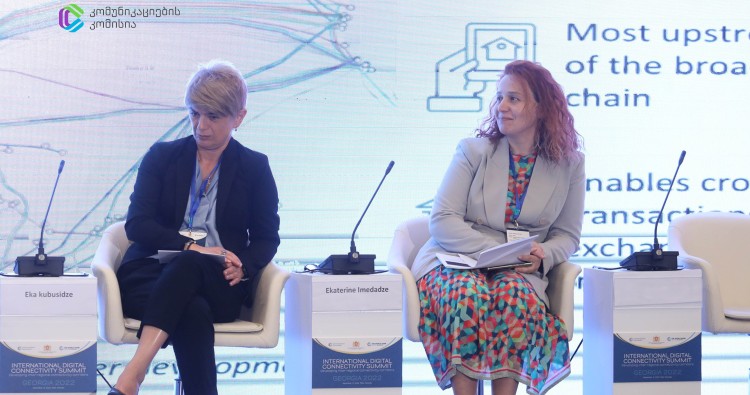Georgian communications commission hosts Youth Internet Governance Forum for first time in country

The Youth Internet Forum, as part of the eighth Internet Governance Forum GeoIGF 2022, is hosted by the commission, the Georgian economy ministry and the Internet Society of Georgia and with the institutional support of the Council of Europe office in Georgia, which is coordinated by the country’s Association of Small and Medium Telecom Operators. Photo: Georgian national communications commission
The Georgian national communications commission is hosting the Youth Internet Governance Forum on the weekend for the first time in Georgia, which aims to inform young people about the internet sphere, information security and communications sector, and encourage their involvement, the commission said.
In her welcoming speech, Ekaterine Imedadze, a member of the communications commission, highlighted the role of the telecommunications sector in the country’s success and the involvement of the internet community in the development of this field, adding the forum would “speed up” the dialogue between all interested parties, including youth, the state and the private sector, as well as the civil society and technical experts.
The Youth Forum is a place and opportunity for young people to hold debates, share experiences and knowledge with each other, formulate and share their positions on issues such as internet access and accessibility, online content, media and information literacy, security, data privacy, and the protection of vulnerable groups”, Imedadze noted.
She also stressed that despite the people under 30 being the largest demographic group of internet users, they were “underrepresented” in internet governance forums and decision-making processes on digital agenda. “Young people have extensive knowledge of the digital world they interact with every day and therefore, deserve a stronger role in the decision-making process”, Imedadze added.
Sandro Karumidze, the head of the spectrum and technology department of the commission, briefed the participants on the history of the development of the internet in Georgia and spoke about the role of the state in its development, the competitive environment in the market and protection of the interests of users, also focusing on the correct distribution of resources, the availability of quality internet, and the safe usage of the internet for users.
The Youth Internet Forum, as part of the eighth Internet Governance Forum GeoIGF 2022, is hosted by the commission, the Georgian economy ministry and the Internet Society of Georgia and with the institutional support of the Council of Europe office in Georgia, which is coordinated by the country’s Association of Small and Medium Telecom Operators.
 Tweet
Tweet  Share
Share